What does behaviour change have to do with inclusion?
Inclusive Futures projects in Bangladesh and Nigeria are trialling different ways to tackle stigma and discrimination faced by people with disabilities.
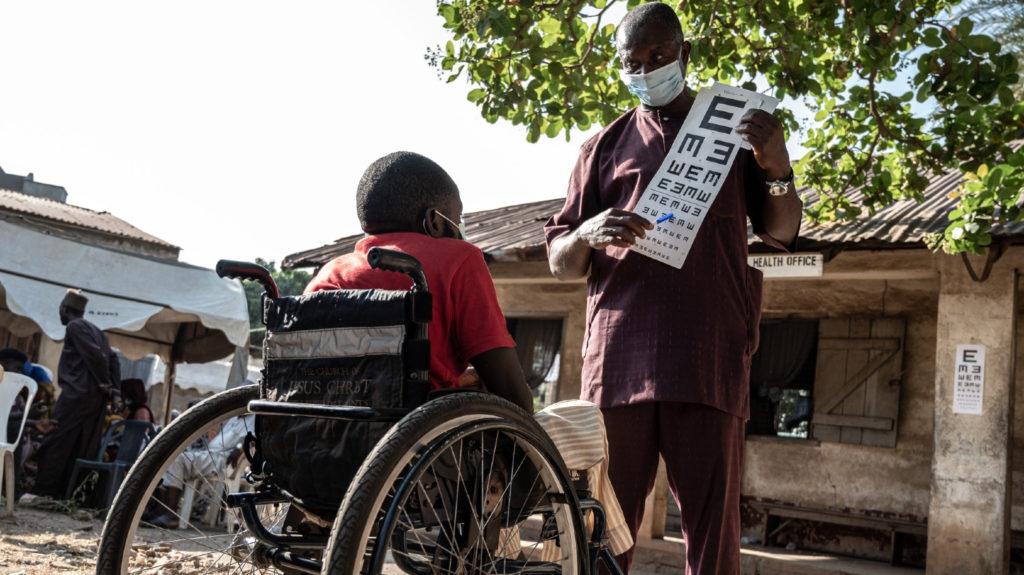
People with disabilities often face huge barriers to getting an education, earning a living or accessing healthcare because of the beliefs people hold about their needs and abilities.
The UK aid-funded Inclusive Futures disability inclusive development programme is using social behaviour change (SBC) in different ways to tackle these negative stereotypes, stigma and discrimination and encourage inclusion.
We’re working to:
- improve how healthcare and education workers interact with people with disabilities;
- promote social inclusion by reducing stigma and negative stereotypes towards people with disabilities;
- address self-stigma and encourage the practice of healthy behaviours;
- encourage people with disabilities to access inclusive education and health services.
In the three examples below, in Bangladesh and Nigeria, detailed research was carried out to determine the causes of negative social behaviours. This data helped to identify target audiences, develop a strategic approach, and design activities, materials and messages to influence positive behaviour.
What makes a good social behaviour change activity?
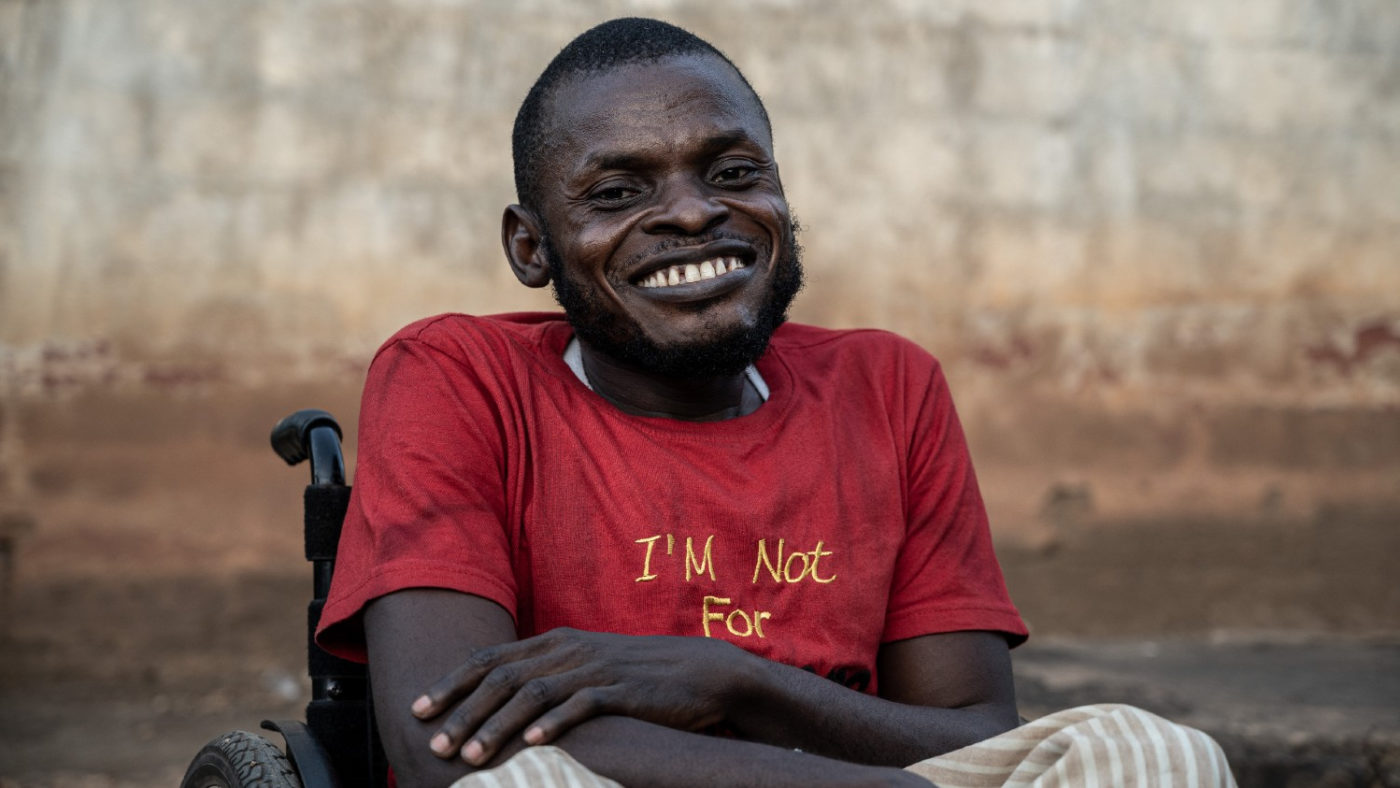
Improved eye health, Nigeria
In Kogi State, Nigeria, an Inclusive Futures eye health project is using social behaviour change to tackle stigma and discrimination and encourage people with disabilities to access eye health services.
Through a combination of community awareness raising and training, the project aims to improve the knowledge and understanding of disability of healthcare staff and improve the quality-of-care people with disabilities receive. It is also using communications to challenge misconceptions around the causes of eye health issues, and raise awareness about available treatments and the importance of regular eye examinations amongst people with disabilities.
Yakubu is a wheelchair user from a village in Kogi. In the past, he has had to travel nearly two hours to access healthcare services in the nearest city, Lokoja, and has been refused entry to the transportation he needed to get there due to stigma from drivers and other passengers.
He heard about the inclusive eye health screenings on local radio and was encouraged to attend an eye health check-up for the first time. He said the project is helping to spread the word about having regular eye tests: “Now, we’re all educated. We are being enlightened that: “You should come and do this and know your eye status, whether you have a problem or not.”
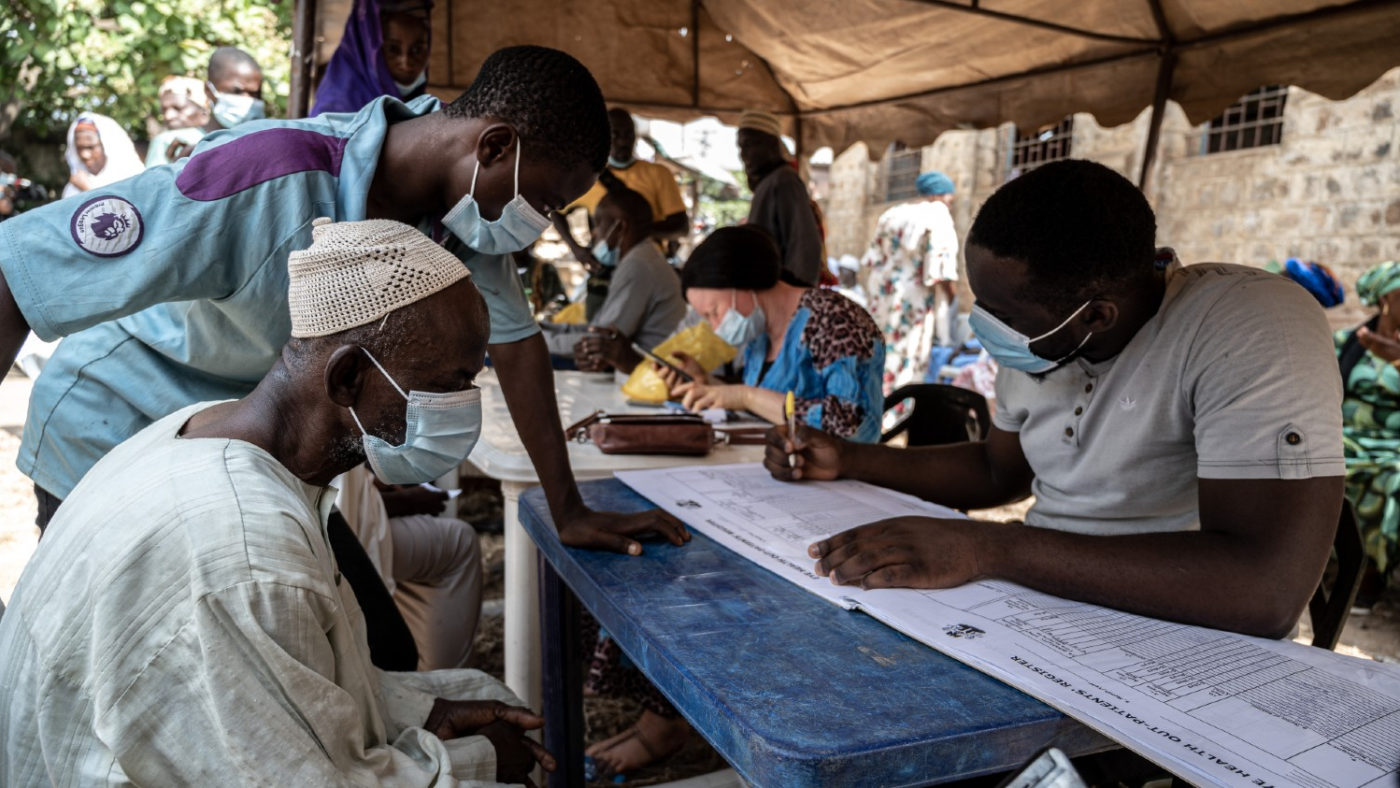
The project is also carrying out training sessions to educate healthcare workers on the needs of people with different impairments and how to improve their skills when interacting with people with disabilities. These are designed and delivered in partnership with organisations of people with disabilities (OPDs).
Ahmed, Secretary of the National Association of the Blind, an OPD project partner, explains: “I was part of those that trained the hospital staff on how hospitals should be made accessible [to people with disabilities]. We’ve been able to pass a lot of knowledge to sensitise… the general public [through radio jingles] about this project. And I think it is yielding a lot of results.”
How effective the project is in bringing about behaviour change will be measured by collecting data on the number of people with disabilities attending eye health screenings. Dr Joshua Omojo Ibenu, programme officer for eye health at Sightsavers, the project lead, believes it is already having an impact.
He said: “We’ve seen an increase in persons with disabilities visiting our healthcare facilities and are doing surveys that will help us to quantify how far this increase has come. We have seen persons with disabilities at the forefront of advocacy meetings and… we have also seen health workers improve their attitude and their behaviour towards persons with disabilities at these facilities. So those are some of the ways that the project has really improved things.”
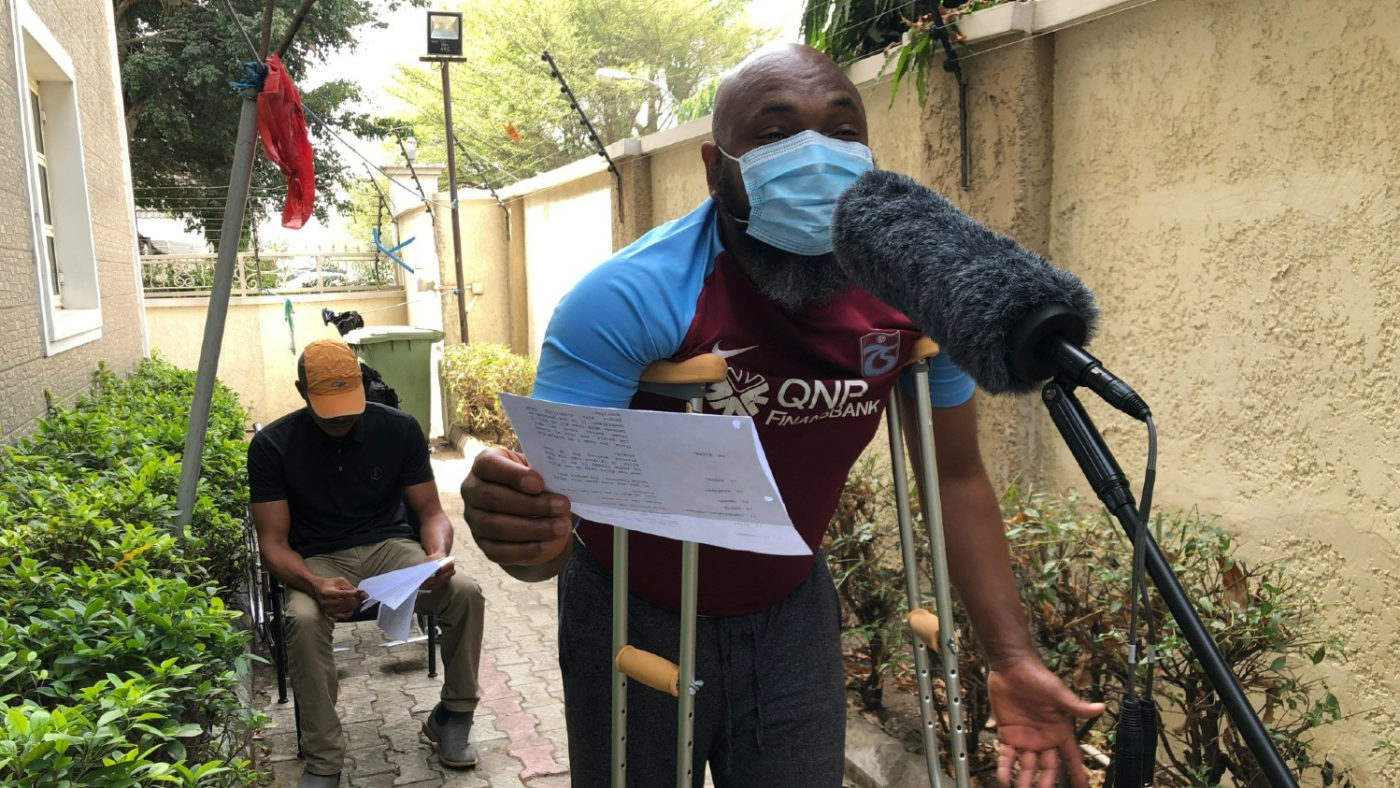
Tackling stigma and discrimination through the media, Nigeria
Story Story is a long-running radio drama, produced by BBC Media Action. Set in a traditional West African market, it follows a range of characters and explores the everyday issues that affect their lives.
Under Inclusive Futures, three new series of the drama were produced and broadcast between November 2020 and November 2021. By working with OPDs, the production team ensured that the characters, storylines and scripts reflected the lived experiences of people with disabilities and the issues they face.
BBC Media Action also produced accompanying social media content, public service announcements and training for local media providers on how to produce disability-inclusive content.
Anu Njamah, Head of Research and Learning at BBC Media Action said, “building the capacity of local media partners, meant they were able to carry on talking about disability issues in very localised ways, producing content that people could relate to.”
Research conducted at the end of the project showed that Story Story reached 3.96m people – 13% of the total population across six states in Nigeria where the series was broadcast.
The drama was not only successful in increasing the visibility of people with disabilities in the media, but by focusing on the stories of individual characters and their everyday lives, it encouraged listeners to relate to these characters rather than stigmatise them. Furthermore, by showing people with disabilities in everyday jobs and situations, Story Story challenged misconceptions about their ability to participate equally in society.
Over a quarter (28%) of listeners interviewed said they had done something differently as a result of listening to the programme, most commonly:
- treating people with disabilities more kindly (mentioned by 81% of those who said they had done something differently);
- being more friendly towards people with a disability (69%);
- no longer discriminating against people with a disability (60%).
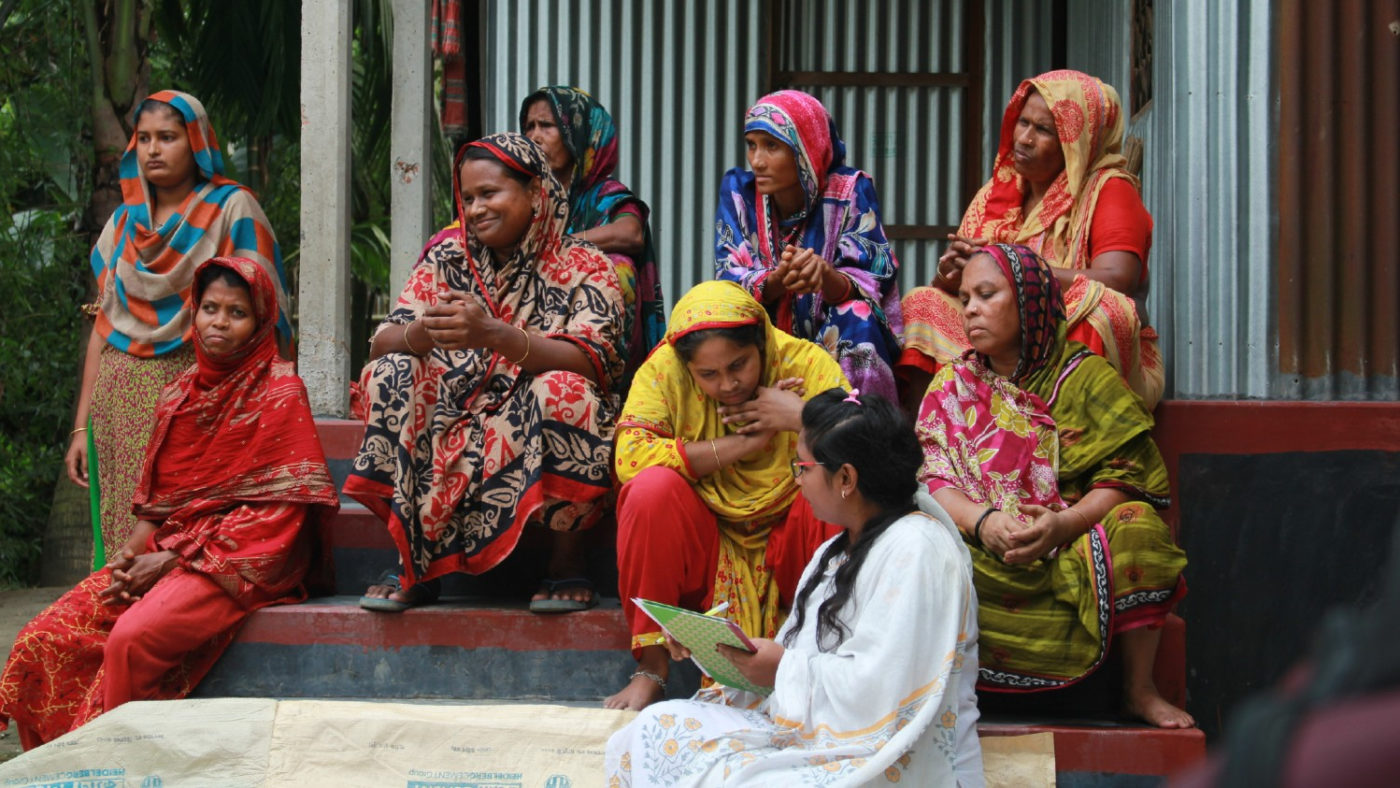
Skills training and employment for young people, Bangladesh
In Bangladesh, research carried out under Inclusive Futures looked at negative stereotyping of people with disabilities and how that affects their ability to participate in society and make a living.
The research showed that market employers perceive people with disabilities to be less productive and that community members view disability as a consequence of sinful parents. It also showed that people with disabilities can be seen as a burden by their family members and are mocked or called derogatory names in their communities. Discriminatory behaviour like this can lead to people with disabilities feeling inadequate and withdrawing from society.
In addition to providing skills training to build the confidence of young jobseekers, Inclusive Futures partner, BRAC, is running sessions with family members, communities and market employers to challenge their understanding of disability.
Read the learning brief
Learn more about SBC and how it is being used in Inclusive Futures work, to support disability inclusion in development programmes.
Download the pdfThrough involving OPDs and disability inclusion facilitators in the sessions as role models and using a specially designed toolkit which reinforces positive messaging around disability, BRAC aims to tackle the discriminatory attitudes, misconceptions and practices identified in the research.
How effective the campaign is in changing the behaviours of the different groups will be measured in two steps. Firstly, through surveys carried out before and after the campaign to measure whether those who have taken part have greater knowledge and understanding of disability. Whether increased knowledge and awareness results in changes to behaviour will be measured over a longer period.
More news and opinions
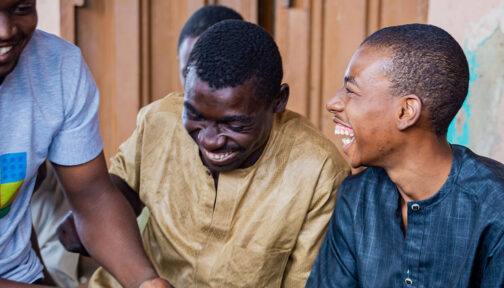
Global Disability Summit 2025: Closing the gap between disability inclusion and development
Inclusive Futures is attending the summit in Berlin on 2-3 April. Visit our booth or attend our panel event to connect with us and learn more about our programme insights.
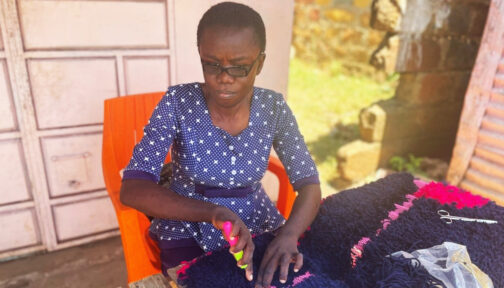
Sense International wins prestigious Zero Project award for its work with entrepreneurs with disabilities
Sense International has won a 2025 Zero Project Award for empowering individuals with deafblindness and complex disabilities in Kenya to build successful businesses and achieve financial independence.
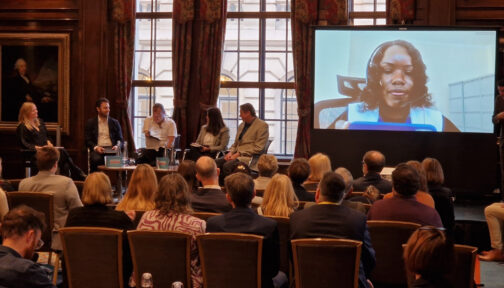
Driving change: launching the six principles for inclusive development
Inclusive Futures and the UK Foreign, Commonwealth & Development Office marked International Day of People with Disabilities by jointly hosting an event to launch the six principles for inclusive development.
